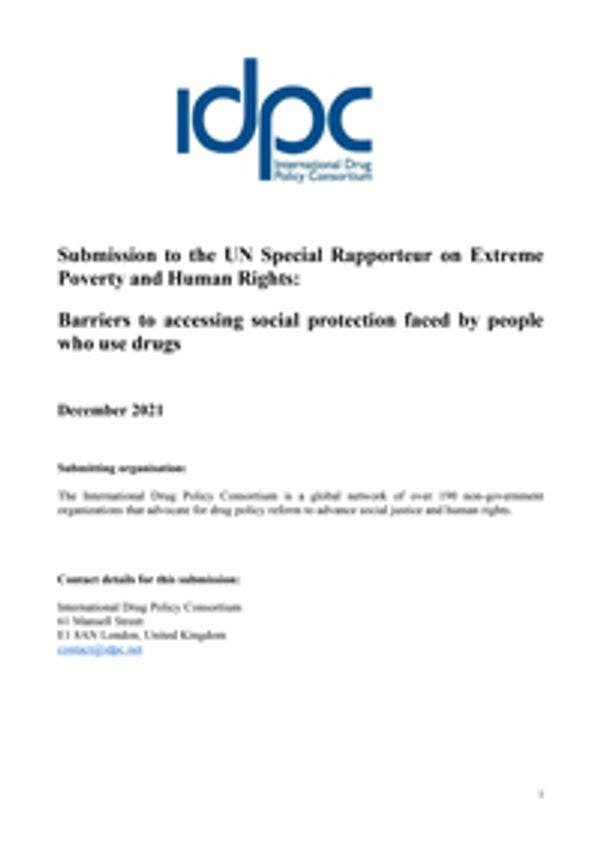‘Marginalising the most marginalised’: Gathering evidence on how the welfare state discriminates against people who use drugs - Submission to the UN Special Rapporteur on extreme poverty and human rights
‘Marginalising the most marginalised’: Gathering evidence on how the welfare stare discriminates against people who use drugs
All persons are entitled to basic social protection by the state, including health care, education, and a secure income when they are sick, disabled, retired, or simply have no job.
However, people who use drugs are often discriminated against when they try to access the services to which they should be entitled – with devastating consequences for their life, health, and well-being.
Drawing on desk research and on a survey of the IDPC membership, this IDPC submission provides an overview of the main mays in which this discrimination is operated.
First, it gathers examples of how authorities create rules that explicitly condition access to services to abstinence from drug use. Thus, people who are unable or unwilling to stop using drugs are pushed away from basic forms of health, social security, or housing.
Secondly, this submission explains that people who use drugs are also excluded from the welfare state through stigma and informal discrimination. A survey of 34 IDPC members shows that people who use drugs are informally excluded from social services in a majority of countries, or avoid them out of fear of shaming, rejection, or punishment.
Barriers to accessing social services – whether explicit or implicit – inevitably target people who live in poverty, as they are the ones who rely on the state for basic protection. As one of the sources cited in this submission puts it, they ‘marginalise the most marginalised’. States have the obligation to eliminate all formal barriers to accessing social services, and to take action to remove informal barriers such as stigma and discrimination.
